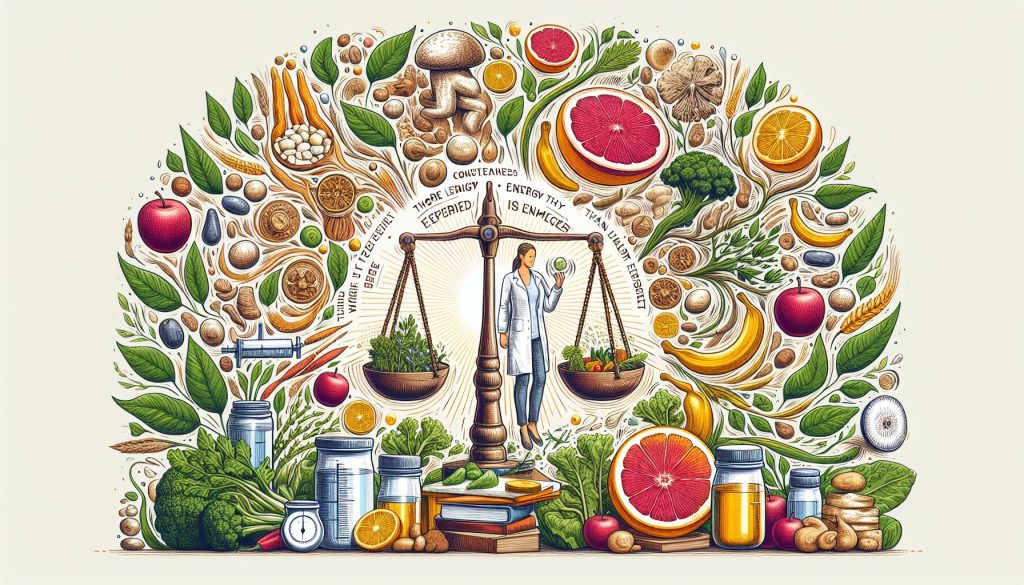
Introduction to Energy Imbalance
Does your diet contain more energy than you expend? If so, you might be climbing aboard the treacherous treadmill of weight gain, albeit stuck on the uphill incline. In simpler terms, an energy-dense diet that surpasses your energy use can potentially lead you toward being overweight or even obese. This article illuminates the implications and aftermath of maintaining an imbalanced energy equation. So, strap in for an expedition through the complex maze of metabolism, energy expenditure, and diet, where the key to a comprehensive understanding awaits.
The Game of Energy: Intake VS Expenditure
Think of your body as an intricate machine, powered by the food you consume. Our daily diet supplies us with life’s vital fuel - energy, stored in the food’s macronutrients. Carbohydrates, fats, and proteins contribute energy in different proportions. The energy is then released as our bodies breakdown these nutrients, helping us dabble in everything, be it running a mile or simply blinking an eye. The energy-use-in-diet resembles a credit and debit system in a bank account. If your energy intake equals the energy spent, you’re in equilibrium.
The Sight of Imbalance
Picture this: You’re feasting at a buffet, letting the decadent desserts and creamy curries beckon you, one plate after the other. Simultaneously, your energy expenditure doesn’t pick up the pace to match your intake. The energy excess doesn’t just evaporate; your body, in all its wisdom, stores it for leaner times. Resultantly, the energy bank swells, leading to weight gain, a situation much like your bank account bulging after continuous deposits with minimal withdrawals.
Diet & Excess Energy: A Walk Through
Your diet is a significant player in the energy balance equation. When we fondly indulge in energy-dense foods, we’re like kids in a candy store, packing our bodies with more fuel than needed. Processed foods, refined sugars, fat-laden delights and those sneaky alcohol calories, all contribute to a higher energy intake. In contrast, healthier options like fruits, vegetables, and whole grains pack fewer calories, thereby giving the body a more balanced energy supply.
The Domino Effects
Now, envision this energy surplus as a chain of dominos, toppling one over the other, causing several health hitches. It sends our bodies into the grip of weight gain at first. But that’s just the tip of the iceberg. Delve deeper, and you’d find an array of chronic diseases like diabetes, heart disease, high blood pressure, breathing problems, and certain cancers lurking under the surface, ready to spring upon you at the slightest chance.
Energy Expenditure: The Other End of The Spectrum
Just as energy intake regulates your energy balance, on the flip side of the coin, we have energy expenditure. The energy expended includes the basal metabolic rate, physical activities, and energy burned during digestion. Popular misconception infers exercise as the sole source of energy expenditure. Truth be told, even while you’re immersed in a Netflix marathon, your body is using energy for all the physiological processes unseen to your eye.
Expenditure and The Role it Plays
Increasing your daily energy expenditure can help tilt the balance in your favor, creating an energy deficit. And when you’re spending more than you’re earning, your body dips into the savings for the extra energy, causing weight loss. Go on, lace up your walking shoes, dance to your heart’s content, pave your way into yoga, or just take the stairs instead of the elevator. Every activity counts and contributes to tipping the balance.
Conclusion on Energy Imbalance
So, when the culinary wonders woo you into consuming more energy than you expend, you’re setting the stage for an energy imbalance. Maintaining harmony between your diet and activity level is as essential as walking on a tightrope, ensuring one doesn’t outweigh the other. Ultimately, understanding and implementing an energy balanced lifestyle is what can lead us to a healthier, happier life.
Frequently Asked Questions
1. What happens when you consume more energy than you expend?
If your diet provides more energy than you expend, the excess energy will be stored as fat. This storage can lead to weight gain and, over time, potentially obesity.
2. How can I control my energy balance?
Monitoring your diet and regular physical activity can help control your energy balance. Opt for healthier foods, lower calorie options keeping in mind portion control, and try to incorporate more physical activity into your daily routine.
3. What factors affect energy expenditure?
Your age, gender, body size, and overall body composition can influence how much energy you expend. Physical activity and the specific type of activity you partake in also plays a vital role.
4. Does a sedentary lifestyle affect energy balance?
Maintaining a sedentary lifestyle can lead to consuming more energy than you expend. It can negatively affect your energy balance by reducing energy expenditure and contributing to weight gain.
5. Are all calories the same?
All calories provide the same amount of energy. However, the nutrients they come along with and their impact on your body can be quite different. Therefore, focusing on the quality of calories you consume is just as important as the quantity.



